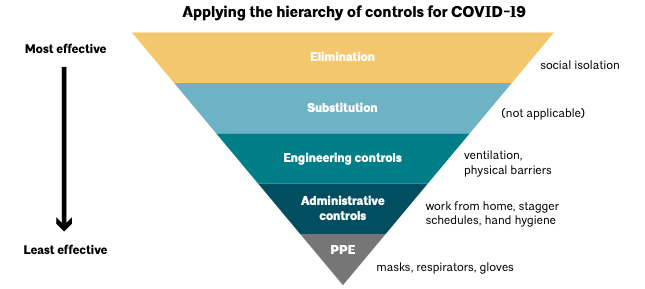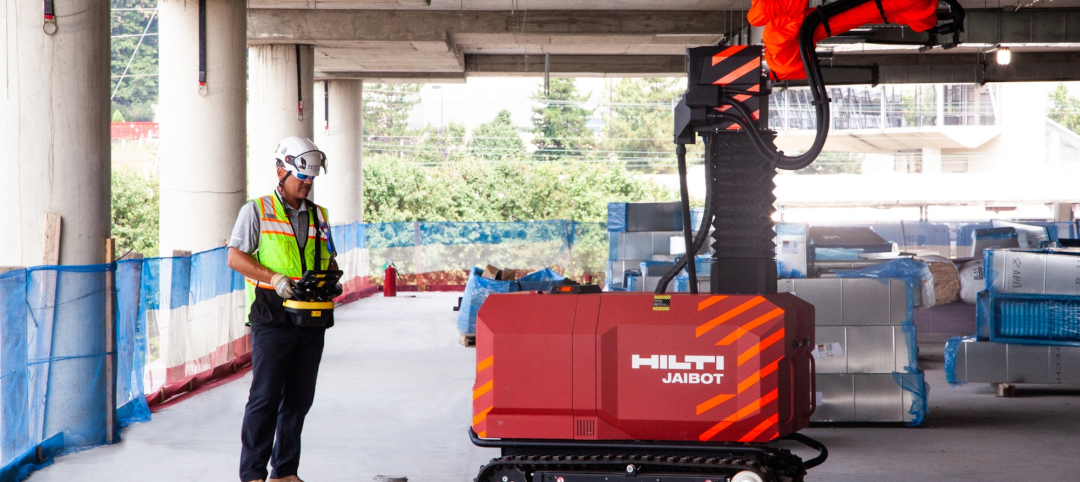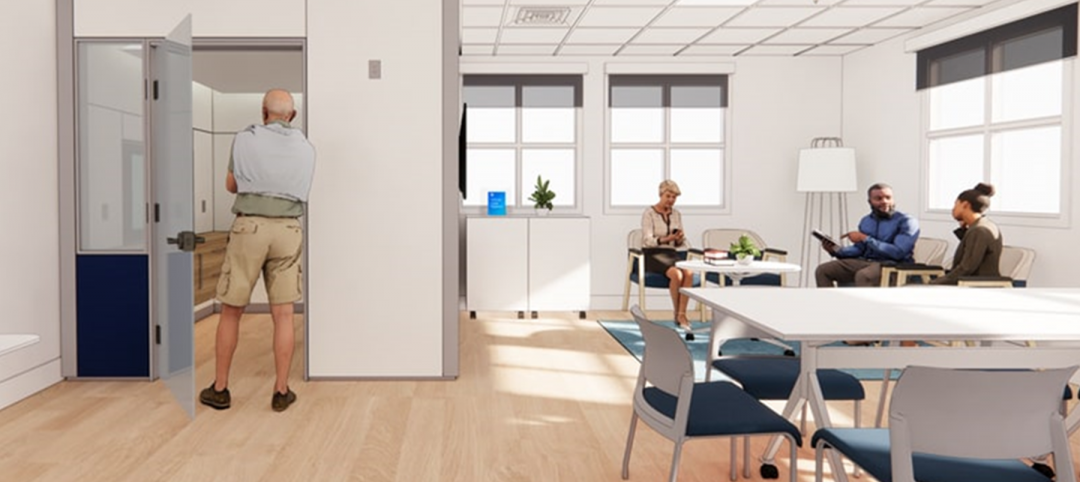The American Institute of Architects (AIA) is releasing a new Re-occupancy Assessment Tool today that provides strategies for limiting exposure to COVID-19 in buildings.
"Design is a response to the conditions, needs and functions of our society,” said AIA 2020 President Jane Frederick, FAIA. “This may be the most pivotal and defining moment in our lifetime for design. Architects are needed in this crisis to help safely transition our communities back to offices, schools and the many other places that are important in shaping our daily lives.”
AIA’s Disaster Assistance Committee developed the Re-occupancy Assessment Tool to provide public officials, businesses and architects with practices that protect the health, safety and welfare of the public while businesses, stores, restaurants, etc., reopen. The tool provides a framework of strategies and general mitigation measures that can help reduce exposure to COVID-19.
Using credible science, a multi-disciplinary team of architects, public health experts, engineers, product designers, and facility managers will evaluate behavioral, spatial, material and operational strategies to customize the tool for a variety of building types, including:
• offices;
• schools (K-12);
• multi-unit dwellings;
• retail establishments, restaurants; and
• senior care facilities.
Findings will be released in phases as they become available, with a priority focused on strategies that address immediate needs. Long-term strategies will also be developed for making buildings more resilient in the face of pandemics, natural hazards, climate change and other risks.
Visit AIA’s website for more COVID-19 resources for architects.
Related Stories
Augmented Reality | Jan 27, 2023
Enhancing our M.O.O.D. through augmented reality therapy rooms
Perkins Eastman’s M.O.O.D. Space aims to make mental healthcare more accessible—and mental health more achievable.
K-12 Schools | Nov 30, 2022
School districts are prioritizing federal funds for air filtration, HVAC upgrades
U.S. school districts are widely planning to use funds from last year’s American Rescue Plan (ARP) to upgrade or improve air filtration and heating/cooling systems, according to a report from the Center for Green Schools at the U.S. Green Building Council. The report, “School Facilities Funding in the Pandemic,” says air filtration and HVAC upgrades are the top facility improvement choice for the 5,004 school districts included in the analysis.
Giants 400 | Nov 14, 2022
4 emerging trends from BD+C's 2022 Giants 400 Report
Regenerative design, cognitive health, and jobsite robotics highlight the top trends from the 519 design and construction firms that participated in BD+C's 2022 Giants 400 Report.
Healthcare Facilities | Jun 20, 2022
Is telehealth finally mainstream?
After more than a century of development, telehealth has become a standard alternative for many types of care.
Coronavirus | May 20, 2022
Center for Green Schools says U.S. schools need more support to fight COVID-19
The Center for Green Schools at the U.S. Green Building Council released a new report detailing how school districts around the country have managed air quality within their buildings during the second year of the COVID-19 pandemic.
Industry Research | Mar 9, 2022
Survey reveals five ways COVID-19 changed Americans’ impressions of public restrooms and facilities
Upon entering the third year of the pandemic, Americans are not only more sensitive to germs in public restrooms, they now hold higher standards for the cleanliness, condition and technology used in these shared spaces, according to the annual Healthy Handwashing Survey™ from Bradley Corporation conducted in January.
Codes and Standards | Feb 21, 2022
New standard for ultraviolet germicidal irradiation
The Illuminating Engineering Society (IES) recently introduced the standard, ANSI/IES RP-44-21 Recommended Practice: Ultraviolet Germicidal Irradiation.
Coronavirus | Jan 20, 2022
Advances and challenges in improving indoor air quality in commercial buildings
Michael Dreidger, CEO of IAQ tech startup Airsset speaks with BD+C's John Caulfield about how building owners and property managers can improve their buildings' air quality.
Coronavirus | Jul 20, 2021
5 leadership lessons for a post-pandemic world from Shawmut CEO Les Hiscoe
Les Hiscoe, PE, CEO of Shawmut, a $1.5 billion construction management company headquartered in Boston, offers a 5-point plan for dealing with the Covid pandemic.
Resiliency | Jul 15, 2021
A new report urges federal investment in healthier buildings
The National Institute of Building Sciences also calls for code changes and greater cooperation between building owners and the AEC community.

















